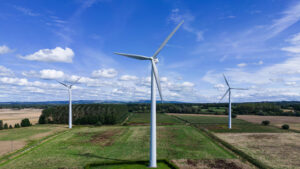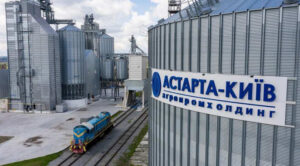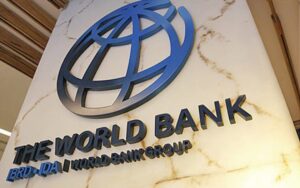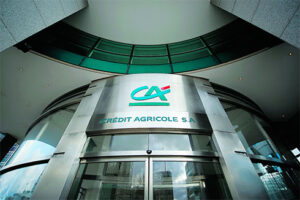
On December 20, 2024, the International Finance Corporation (IFC) of the World Bank Group signed documents to provide a $53.87 million loan to Concern Galnaftogaz to finance the construction of a 147 MW wind farm in Volyn region and technical support.
According to the IFC website, the total cost of the project is estimated at EUR261 million (including VAT), with a 16-year loan provided to the established project companies Wind Power G&I Volyn LLC and Wind Power G&I Volyn 3 LLC, controlled by GNG Retail Limited and its subsidiary Concern Galnaftogaz (together – GNG Group).
It is noted that the project involves the attraction of mixed financing, in particular from the UK-FCDO and EC-UIF, as well as the Clean Technology Fund.
Earlier, on December 4, participation in the project was also approved by the European Bank for Reconstruction and Development (EBRD), which has also already signed documents to provide the above-mentioned LLCs with a long-term loan of EUR 60 million for the construction of a 147 MW wind farm in the Volyn region.
The wind farm is expected to produce about 380 GWh (380 million kWh) of renewable electricity with zero carbon emissions annually.
In February 2024, the Antimonopoly Committee of Ukraine (AMCU) allowed GNG Retail Limited (Cyprus) to buy more than 50% of the authorized capital of Wind Power G&I Volyn LLC and Wind Power G&I Volyn 3 LLC. According to open registers, GNG Retail Limited owns 89.5% of the two LLCs, and JSC ZNVKIF Rimini (in which Vitaliy Antonov owns 83.19%) owns 10.5%.
OKKO CEO Vasyl Danyliak announced the start of construction of a wind farm in Volyn region in the fall of 2024. He explained the group’s plans to work in the renewable energy sector by the need to diversify its business, as the fuel market no longer foresees growth.
“Galnaftogaz operates one of the largest networks of OKKO filling stations, which includes more than 400 complexes with a network of catering facilities. The group also includes other businesses.
Vitaly Antonov’s GNG Retail Limited owns 90.25% of Concern Galnaftogaz shares. In October 2024, Avalia Investments Limited (Cyprus) of the founder and chairman of Concorde Capital, Igor Mazepa, became the owner of another 7.35% of the shares.

On December 10, 2024, the International Finance Corporation (IFC) of the World Bank Group plans to consider a EUR55 million loan to Concern Galnaftogaz to finance the construction of a 147 MW wind farm in Volyn region and technical support.
According to the IFC website, the total cost of the project is estimated at EUR 235 million. The 16-year loan will be granted to Wind Power G.I. Volyn LLC and Wind Power G.I. Volyn 3 LLC.
As reported earlier, the European Bank for Reconstruction and Development (EBRD) plans to approve a EUR62 million long-term loan to the above-mentioned LLC on 4 December 2024 for the construction of a 147 MW wind farm in Volyn region.
The wind farm is expected to produce about 380 GWh (380 million kWh) of renewable electricity with zero carbon emissions annually.
In February 2024, the Antimonopoly Committee of Ukraine (AMCU) allowed GNG Retail Limited (Cyprus) to acquire more than 50% of the authorized capital of Wind Power G&I Volyn LLC and Wind Power G&I Volyn 3 LLC.
According to public registers, GNG Retail Limited owns 89.5% of the two LLCs, and JSC ZNVKIF Rimini (in which Vitaliy Antonov owns 83.19%) owns 10.5%.
OKKO CEO Vasyl Danyliak announced the start of work on the construction of a wind farm in Volyn region in the fall of 2024. He explained the group’s plans to work in the renewable energy sector by the need to diversify its business, as the fuel market no longer foresees growth.
“Galnaftogaz operates one of the largest networks of OKKO filling stations, which includes more than 400 complexes with a network of catering facilities. The group also includes other businesses.
Vitaly Antonov’s GNG Retail Limited owns 90.25% of Concern Galnaftogaz shares. In October 2024, Avalia Investments Limited (Cyprus) of the founder and chairman of Concorde Capital, Igor Mazepa, became the owner of another 7.35% of the shares.

The International Finance Corporation (IFC) of the World Bank Group is considering a $40 million loan and a $40 million parallel loan to Ukraine’s largest sugar producer, Astarta, for the construction of a soy protein concentrate plant in Poltava region.
“The proposed investment is an IFC A loan of up to $40 million and a parallel loan of up to $40 million to Astarta Agro Protein Ukraine LLC, a subsidiary of Astarta Holding PLC, to finance the capital expenditures for a prospective soy protein concentrate (SPC) plant in Central Ukraine,” IFC said on its website.
It is noted that IFC has already assisted the agricultural holding in conducting market research, preparing a business plan for the project, and assessing its commercial viability in order to interact with potential investors.
It is specified that the IFC Board of Directors plans to consider this project on December 20 this year.
As reported, in 2024, Astarta began investing in the construction of a plant for processing soybean meal into soy protein concentrate with a capacity of 500 tons per day (about 100 thousand tons per year) in the Globinsky Industrial Complex (Poltava region). The agricultural holding will invest over EUR76 million in equipment and technology and create 110 new jobs.
“Astarta and its structural unit Astarta Agro Protein signed the first investment agreement with the Ukrainian government to receive compensation from the state for significant investments. As part of the agreement, the government will provide the agricultural holding with a number of incentives, including exemptions from import duties on new equipment, import VAT on new equipment and income tax for up to 5 years.
IFC recalled that Astarta commissioned a soybean processing plant in Globyno in December 2013. In 2023, it processed 232 thousand tons of soybeans, 73% of which were grown by the agricultural holding, and produced 172 thousand tons of soybean meal. In the first half of 2024, the share of the plant’s own raw materials increased to 90%.
Soy concentrate is produced by processing soybean meal with higher added value. It is used as a raw material for animal feed production.
If approved, this will be IFC’s fifth investment in Astarta since 2012.
“Astarta is a vertically integrated agro-industrial holding company operating in eight regions of Ukraine. It includes six sugar factories, agricultural enterprises with a land bank of 220 thousand hectares and dairy farms with 22 thousand cattle, an oil extraction plant in Globyno (Poltava region), seven elevators and a biogas complex.
In 2023, the agricultural holding reduced its net profit by 5.0% to EUR 61.9 million, and its EBITDA decreased by 6.1% to EUR 145.77 million, while revenue increased by 21.3% to EUR 618.93 million.
“In January-September 2024, Astarta increased its net profit by 35.1% to EUR75.60 million, EBITDA by 12.8% to $131.56 million, with revenue up 12.6% to EUR441.46 million.

The World Bank Group’s IFC plans to mobilize about $345 million to build a new 350 MW wind power capacity in Ukraine, the corporation said on its website on Wednesday.
The report said the initiative was presented among other initiatives aimed at supporting Ukraine at the URC-2024 recovery conference in Berlin.
Now these projects, which are planned to be implemented in order to improve energy security and support further development of renewable energy in Ukraine, are undergoing due diligence and awaiting approval by the IFC management and Board of Directors, the corporation specified.
As reported, at URC-2024, Knud Rissel, commercial director of the German company Notus Energy, said that it is engaged in the implementation of a 300 MW WPP project in the Odessa region, the first phase of which will be 120 MW.
“We already have all the permits, in particular those related to land. Banks are supporting us, although they are taking a risk by supporting us. But we are all ready to work even under martial law,” he said.
According to Rissel, the company also signed some agreements on the project realization at this conference.

On December 15, Ukraine’s Credit Agricole Bank signed a EUR 40 million hryvnia equivalent risk-sharing agreement with the International Finance Corporation (IFC) under the IFC Small Loan Guarantee Program to empower Ukrainian businesses, the bank said in a release on Thursday.
“This will allow the bank to support investments by micro, small and medium-sized enterprises (SMEs), in particular in the agricultural sector, which are crucial for the sustainability of the country’s economy,” the statement said.
It is specified that the agreement was signed under the IFC Small Loan Guarantee Program, which is supported by the European Commission through the European Fund for Sustainable Development. The project is part of the IFC’s $2 billion Economic Resilience Action (ERA) program to support Ukraine’s private sector.
According to the National Bank of Ukraine, as of October 1, 2023, Credit Agricole Bank ranked 11th in terms of total assets (UAH 100.36 billion) among 63 operating banks in the country, with 141 outlets. The bank is fully owned by French Credit Agricole SA.

The International Finance Corporation (IFC), a member of the World Bank Group, plans to resume cooperation with MHP, Ukraine’s largest chicken producer, and provide a loan of up to $30 million to its subsidiary Vinnytsia Poultry Farm LLC to finance the modernization and expansion of the plant’s biomethane production capacity from agricultural waste.
According to the IFC website, the corporation’s board of directors plans to consider this project at a meeting on September 19 this year.
It is noted that the company already operates two biogas plants to process manure from its farms into green energy. As part of its decarbonization strategy, MHP plans to increase biomethane production in Ukraine by modernizing and expanding the capacity of its biogas plants in several stages. The first stage, which will be financed under the project, will serve to demonstrate the viability of liquefied biomethane production.
The total cost of the project is estimated at $52 million, and in addition to the IFC loan, MHP expects to finance it with its own funds. It is also expected that the project will be supported by a $15 million guarantee from the European Fund for Sustainable Development Plus, the UK, and other donors.
It is specified that the construction is planned at a biogas plant in the village of Vasylivka (Haisyn district, Vinnytsia region), which was launched in 2019 and is the largest such plant in Ukraine with a capacity of 12 MW.
At the first stage of the project, it is planned to modernize the existing facilities to produce 14 thousand tons of liquefied biomethane per year, and at the second stage – to expand the capacity to 20.5 MW.
IFC specifies that if approved by the board of directors, this will be the corporation’s sixth investment in MHP since 2003, the last of which was opened in 2014 and closed in 2019.
The corporation also points out that since 2018, members of local communities, with the support of a number of environmental organizations, have complained about the investments of IFC and the European Bank for Reconstruction and Development to the CAO (Compliance Advisor Ombudsman). As noted in the CAO’s materials, despite the efforts of all parties, no final solution was found.
In February 2022, the CAO published its final report and referred the case to the Compliance Department. After the case was suspended in Ukraine in March 2022 due to the full-scale war against Ukraine launched by Russia, the CAO resumed its work on the case on October 17 after consultations with stakeholders.
MHP is the largest chicken producer in Ukraine. It also produces grain, sunflower oil, and processed meat products. MHP supplies chilled chicken half-carcasses to the European market, which are processed, in particular, at its facilities in the Netherlands and Slovakia. In February 2019, the holding completed the acquisition of the Slovenian company Perutnina Ptuj.
The founder, majority shareholder and chairman of the board of MHP is Ukrainian businessman Yuriy Kosyuk.
In the first quarter of 2023, MHP’s revenue increased by 34.7% compared to the first quarter of 2022 to $745.60 million, and net profit amounted to $49.07 million against a net loss of $108.25 million (with a foreign exchange gain of $4.18 million against a foreign exchange loss of $95.32 million).